Can bearded dragons eat coriander? It’s a question many reptile owners ask when they’re looking to add safe herbs and variety to their pet’s diet. Coriander—also known as cilantro—is flavorful and full of potential benefits, but not every herb is suitable for reptiles. Feeding the wrong greens can lead to digestive upset or long-term health issues.
Knowing the answer to can bearded dragons eat coriander helps you make smarter food choices. While this herb does offer some nutritional value, it should be served the right way and in the right amount. This guide will cover everything you need to know—how often to feed coriander, which parts are safe, and what to avoid.
You’ll also learn how coriander compares to other herbs, which foods pair well with it, and how to recognize any negative reactions. If you’re hoping to make your dragon’s meals more exciting without risking their health, you’re in the right place.
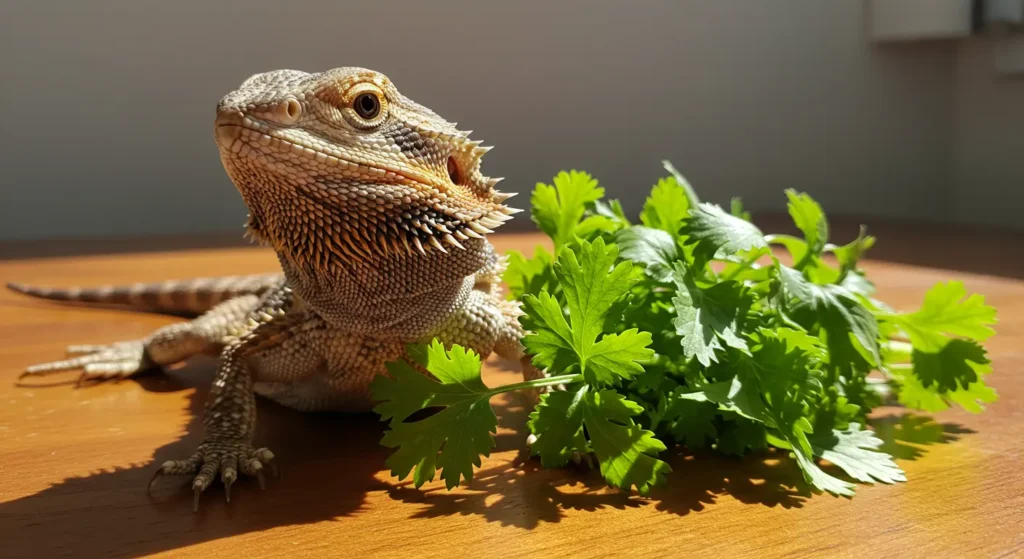
Can Bearded Dragons Eat Coriander Safely?
Coriander is a common herb in many kitchens, but reptile owners often wonder whether it’s safe for their bearded dragons. While it looks harmless, not all herbs suit a dragon’s unique dietary needs.
Understanding Coriander: Herb, Leaf, or Seed?
Coriander can be confusing because it refers to more than one part of the same plant. The fresh leafy part is called cilantro in the United States, while the seeds are known as coriander. So when asking, can bearded dragons eat coriander, the real question is: which part? For reptiles like bearded dragons, only the leafy version (cilantro) should be used. The seeds, while flavorful in human cooking, are not safe for regular reptile consumption. They’re too hard, aromatic, and difficult to digest. The leaves, on the other hand, are soft and carry much milder oils. They’re easier on your bearded dragon’s digestive system and can be offered raw in small amounts. Always avoid feeding dried coriander seeds or powdered spices to your lizard. It’s best to keep things simple and natural. Stick to fresh cilantro leaves only if you want to include coriander safely in your pet’s menu.
Nutritional Breakdown of Coriander for Reptiles
Can bearded dragons eat coriander for nutritional value? Yes, but it should never be their main food. Coriander leaves contain beneficial nutrients like vitamin K, vitamin A, and trace amounts of calcium and potassium. These help support healthy vision, bone development, and blood clotting in reptiles. It’s also low in sugar and fat, which makes it a safe herb for adult dragons who need to maintain a healthy weight. However, its calcium-to-phosphorus ratio isn’t ideal for frequent feeding. Foods high in phosphorus can block calcium absorption, which is dangerous for reptiles. This is why coriander should only be used occasionally, not daily. Mix it in with high-calcium greens like dandelion or collard leaves to balance your dragon’s intake. Can bearded dragons eat coriander every day? Not recommended. Use it as a colorful treat or to enhance their appetite, but not as a nutritional staple.
Toxicity or Safety: What Vets Say
Veterinarians who specialize in reptiles agree that bearded dragons can eat coriander, but it should be done with caution. Coriander leaves are considered non-toxic and safe when offered in small portions. However, like many leafy greens, they contain a mild level of oxalates. These naturally occurring compounds can bind with calcium and reduce its availability in your dragon’s body. Over time, this can lead to metabolic bone disease if the diet isn’t properly balanced. That’s why vets recommend coriander as an occasional herb—never a primary green. It’s also wise to avoid feeding any part of the coriander plant that has been exposed to pesticides. Always choose organic, fresh cilantro if possible. If you’re ever unsure, consult a reptile vet before introducing a new herb. Can bearded dragons eat coriander safely? Yes—but informed and limited use is key to keeping your pet healthy.
Cilantro vs Coriander – Is There a Difference for Bearded Dragons?
When you ask, can bearded dragons eat coriander, it’s important to clarify whether you mean the leaves or the seeds. In American English, “cilantro” refers to the fresh green leaves, while “coriander” often means the dried seeds. This difference matters a lot when feeding reptiles. Bearded dragons should only eat the leafy part of the plant—never the seeds. The leaves are softer, easier to digest, and contain helpful nutrients without being too intense in flavor. On the other hand, coriander seeds are harder, stronger in oils, and can upset a reptile’s stomach. They also contain compounds that are harder for bearded dragons to break down. If you’re ever unsure while shopping, look for fresh cilantro in the produce aisle. That’s the safe version your bearded dragon can eat. So the next time someone asks can bearded dragons eat coriander, you’ll know the correct answer: only the fresh leaves!
Benefits of Feeding Coriander to Bearded Dragons
When used in moderation, coriander can provide several health perks for your bearded dragon. This herb adds not just flavor, but also hydration and essential nutrients that support overall wellness.
Hydration and Fiber Content
Fresh coriander leaves contain a surprising amount of water. This makes them a helpful hydration aid for bearded dragons, especially during summer months or when shedding. Reptiles often get a significant part of their hydration from leafy greens, and this herb contributes to that need. While not as watery as cucumber or melon, coriander still provides a natural moisture boost without adding unnecessary sugar. Its mild fiber content also plays a subtle but important role. A small serving can support regular bowel movements and help prevent constipation or impaction—two common issues in captive reptiles. Unlike high-fiber veggies that can cause bloating, coriander offers just enough to be effective without overwhelming the gut. That’s why adding a few leaves to a weekly salad can improve your dragon’s digestive rhythm. Just be sure to balance it with greens that are richer in calcium to maintain proper nutrition.
Antioxidants and Essential Vitamins
Fresh coriander is more than just a garnish—it provides a small yet helpful mix of nutrients that support your dragon’s internal health. This herb is a source of antioxidants, which play a role in protecting body cells from oxidative damage. That’s especially useful for reptiles that are aging or under environmental stress. It also contains vitamin C, a nutrient that helps support immune strength and general vitality. While reptiles produce some vitamin C on their own, dietary sources can offer a little extra support. The leaves also carry vitamin A, which promotes good eyesight and skin health, and vitamin K, essential for proper blood clotting. These benefits make coriander a solid supplemental herb in your dragon’s rotation. Still, it’s important to remember that this herb is not nutrient-dense enough to be a staple food. Use it as a top-off to a salad, not a replacement for their daily greens.
How Coriander Supports Digestion
A healthy digestive system is key to your bearded dragon’s long-term well-being, and fresh herbs like coriander can play a supportive role. This herb contains natural fiber and mild digestive enzymes that gently stimulate gut activity. When your pet eats coriander along with its regular greens, it may help break down food more efficiently. That reduces the chances of bloating, gas, or impaction—especially in dragons that aren’t getting enough movement or hydration. Coriander is also easier to digest compared to tougher greens or high-oxalate vegetables. This makes it a smart choice for occasional use, particularly during periods when your dragon’s appetite is lower. However, it should not replace essential greens that are higher in calcium and offer more robust nutrition. Think of coriander as a digestive enhancer—a helper that keeps the system moving without doing all the work alone.
A Fresh Addition for Picky Eaters
If your bearded dragon has suddenly stopped eating its greens, it might just be bored with the same old salad. In this case, a few fresh leaves of coriander can make a real difference. The strong, appealing aroma of the herb tends to spark curiosity in reptiles. It can act as a natural appetite stimulant, encouraging even the pickiest eaters to nibble. Dragons that lose interest in their meals may respond well to new textures or scents, and coriander offers both without introducing any harmful compounds. This herb doesn’t overpower the salad but adds a pop of flavor that wakes up the senses. Just sprinkle a small amount over their usual mix of greens and veggies to see if it boosts interest. Over time, rotating safe herbs like coriander can keep feeding time exciting and reduce the risk of dietary burnout.
How to Prepare and Serve Coriander the Right Way
Even healthy foods can become risky if not prepared properly. Serving coriander the right way ensures your bearded dragon enjoys the benefits without digestive upset or nutrient imbalances.
Can Bearded Dragons Eat Raw or Cooked Coriander?
When deciding how to serve coriander, raw is always best. Cooked herbs may seem harmless, but the heating process changes their nutritional makeup and texture. Cooking coriander also risks introducing harmful oils or seasonings, even if unintentional. Bearded dragons have sensitive digestive systems that aren’t built to handle cooked human foods. The raw leaves, however, maintain their natural vitamins and are much easier for reptiles to chew and digest. Soft, fresh leaves blend well with other vegetables and are unlikely to cause stomach upset when served correctly. Raw herbs are also more aromatic, which helps stimulate your pet’s appetite. So if you’re wondering which method is safer or more nutritious, always go for raw. It’s closer to what these reptiles would naturally encounter in the wild and provides maximum benefit with minimal risk. Skip the pan—serve it fresh and unaltered every time.
Serving Size and Feeding Frequency
Portion control is key when feeding herbs to bearded dragons. While coriander can be a helpful and flavorful addition to their diet, it should never take center stage. A small pinch of leaves—around two to three chopped pieces—is enough for a single serving. It’s best used as a topper, sprinkled lightly over staple greens such as collard, mustard, or dandelion leaves. This keeps your dragon’s diet balanced while introducing variety and aroma. Feeding it too often could interfere with calcium absorption due to its mild oxalate content. That’s why most experts recommend offering coriander no more than once or twice a week. Frequent servings might also cause your dragon to ignore more important greens. Consistency and moderation are crucial for reptile health. Stick to small amounts, spread out over time, and always combine coriander with nutrient-rich staples to support strong bones and digestion.
How to Wash and Cut Herbs Properly
Cleanliness matters when feeding any herb to your bearded dragon. Even organic produce can carry dirt, bacteria, or pesticide residues that are unsafe for reptiles. Start by placing the coriander leaves in a colander and rinsing them thoroughly under cold water. Swish them around to remove hidden particles. After rinsing, gently pat the leaves dry with a clean towel or paper towel. Moisture left on the leaves can cause them to spoil faster or make salads soggy. Once dry, finely chop the coriander into small, uniform pieces. This step is especially important for baby or juvenile dragons, as long strands could pose a choking hazard. Avoid including thick stems or wilted leaves. If you’re unsure, stick to just the soft tops of the leaves. Chopped, clean herbs are easier to digest and much safer overall. Clean prep not only protects your dragon—it keeps mealtime stress-free.
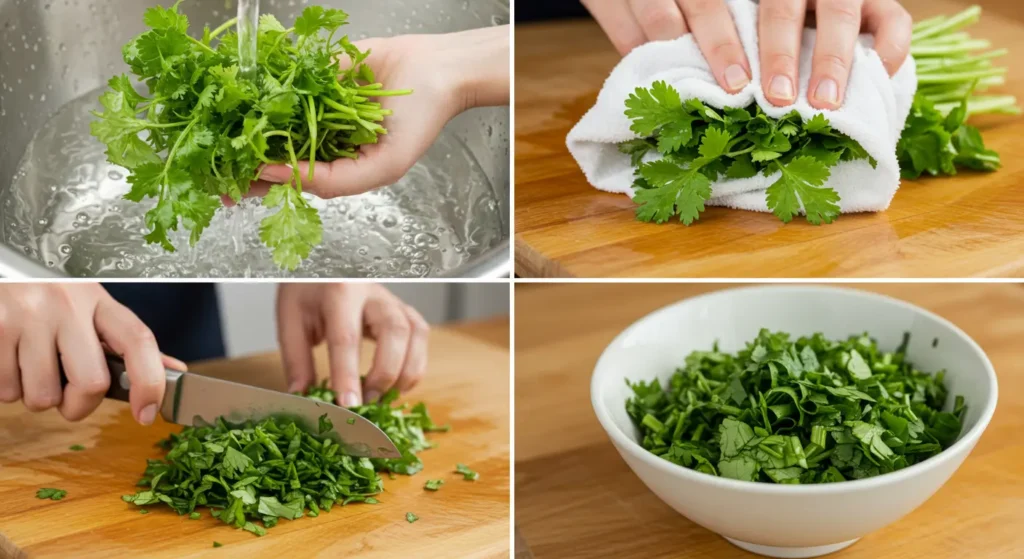
Fresh vs Dried: Which Is Better?
When it comes to feeding herbs like coriander, fresh is always the smarter and safer choice. Dried coriander—especially when sold as seeds or in spice jars—is far too strong for a bearded dragon’s sensitive system. These versions often contain concentrated oils, preservatives, or spice blends that can irritate the digestive tract. They may also be difficult for reptiles to chew or break down. Fresh leaves, on the other hand, are soft, aromatic, and naturally rich in moisture and vitamins. They offer a mild flavor without overwhelming your pet’s senses or stomach. Fresh coriander is also easier to portion and mix with other greens. If you’re tempted to try dried herbs for convenience, it’s better to skip them entirely. Stick to fresh, raw coriander leaves that have been washed and chopped. They’re safer, healthier, and much more beneficial for your bearded dragon’s daily routine.
Other Herbs and Vegetables That Pair Well with Coriander
Coriander works best in a salad when it’s not alone. Bearded dragons need variety to thrive, and mixing coriander with other safe herbs and vegetables ensures a more complete nutritional profile. It also adds different textures and tastes that can help stimulate your dragon’s appetite. Combining multiple leafy greens and veggies supports balanced calcium intake and reduces the risk of overfeeding any single food. The goal is to build a salad bowl that covers hydration, fiber, calcium, and vitamins—without overwhelming your pet’s system. As long as each ingredient is safe, well-washed, and chopped into small pieces, the mix can rotate weekly. A well-paired diet keeps your bearded dragon healthy, active, and excited about mealtime. Coriander brings the aroma, while others offer the bulk of the nutrients. Together, they make a more enriching meal.
Top Safe Herbs for Bearded Dragons
Coriander is only one of several herbs that can benefit a bearded dragon when used correctly. Parsley, basil, and dandelion greens are also popular additions that bring variety and nutrients to your pet’s diet. Each herb has its own blend of vitamins and minerals that support immune health, digestion, and bone strength. For example, dandelion greens are rich in calcium and fiber, while basil contains antioxidants and trace nutrients. However, not all herbs are safe, and some—like chives or mint—should be avoided due to strong oils or poor calcium-to-phosphorus ratios. That’s why it’s important to research each new herb before feeding. When introducing a new one, start with small portions and monitor your dragon’s response. A mix of safe herbs, used in rotation, helps prevent dietary burnout and gives your reptile a wider range of health-boosting nutrients.
Mixing Coriander with Leafy Greens
To get the most from coriander in your dragon’s diet, mix it with leafy greens that are richer in calcium and core nutrients. Some of the best options include collard greens, mustard greens, and turnip greens. These vegetables form the foundation of a healthy bearded dragon diet and are known for their high calcium content. Adding a few coriander leaves into the mix offers flavor and scent without sacrificing nutrition. This combination supports stronger bones, better digestion, and balanced hydration. Make sure to chop all greens into bite-sized pieces to prevent choking and improve digestion. It’s also a good idea to rotate the main greens weekly, while using coriander as a light topper. This strategy keeps meals exciting and ensures your dragon isn’t missing out on key nutrients over time. The right mix makes feeding time healthier and more enjoyable.
Can Bearded Dragons Eat Squash? A Colorful, Crunchy Delight
If you’re looking to add even more variety to your dragon’s diet, squash is a great option. It’s colorful, mildly sweet, and provides a soft crunch that contrasts well with leafy greens and herbs like coriander. Yellow squash, butternut squash, and acorn squash are all safe choices when peeled, chopped, and served raw or lightly steamed (without oils or seasoning). Squash also contains important nutrients like vitamin A and beta-carotene, both of which support vision and immune function. Its high water content can also assist with hydration. When paired with greens and a few coriander leaves, it creates a diverse, balanced meal that appeals to both the taste and health needs of your dragon. Want a deeper dive? Check out our detailed guide: Can Bearded Dragons Eat Squash? A Colorful, Crunchy Delight—you’ll find preparation tips, portion advice, and nutrition facts all in one place.
Variety in a Bearded Dragon’s Salad Bowl
Feeding your bearded dragon the same salad every day can lead to boredom and missed nutrients. That’s why variety is so important. Rotating herbs and vegetables not only makes meals more enjoyable, but also covers a broader range of vitamins, minerals, and textures. Each week, try to include a mix of high-calcium leafy greens, hydrating vegetables like squash or cucumber, and flavorful herbs like coriander or basil. This rotation helps prevent dietary imbalances and ensures your pet doesn’t develop food preferences that exclude essential nutrients. Change the combinations weekly, but keep the core structure consistent: one staple green, one hydrating veggie, and one safe herb. This formula keeps things exciting while supporting long-term health. The more colorful and diverse the salad, the more likely your dragon will stay interested—and stay healthy.
Common Mistakes to Avoid When Offering Coriander
While coriander can benefit your bearded dragon, mistakes in feeding it may lead to health problems. Knowing what to avoid ensures you provide safe, balanced nutrition.
Overfeeding or Unbalanced Diet Risks
Even healthy herbs like coriander can become problematic when overfed. Bearded dragons need a well-rounded diet, and too much of any single ingredient—especially one low in calcium—can throw off their nutritional balance. Relying heavily on coriander or similar herbs may reduce calcium absorption, increasing the risk of metabolic bone disease (MBD), a serious and often irreversible condition in reptiles. Coriander should only serve as an occasional topper, not a staple green. A few small leaves once or twice a week is plenty. Always combine it with calcium-rich greens like collard or mustard to support bone health. When used too often or in large amounts, even non-toxic foods can disrupt your dragon’s digestion. Keep a feeding schedule, watch portion sizes, and aim for variety. A little bit of coriander goes a long way in enhancing meals without creating dietary risks.
Choosing Pesticide-Free, Organic Herbs
Your bearded dragon’s health starts with what goes into their bowl, and that includes how herbs like coriander are grown. Non-organic produce often contains pesticide residues that are invisible to the eye but harmful to reptiles. Bearded dragons have delicate digestive systems that can react negatively to even small traces of chemicals. That’s why it’s best to buy organic or pesticide-free coriander whenever possible. Even with organic herbs, thorough washing is still necessary. Rinse each leaf under cold water to remove any remaining dirt, bacteria, or residue. Pat the leaves dry before chopping and serving. Washing helps, but it won’t remove every chemical if the herb was heavily sprayed. So start with clean, safe produce. Taking this extra step protects your dragon from toxins and ensures every bite is as safe as it is nutritious.
Recognizing Signs of Allergic Reactions or Digestive Upset
While most bearded dragons tolerate coriander well, some may have individual sensitivities. It’s important to observe your pet carefully after introducing any new food, including herbs. If you notice symptoms like vomiting, diarrhea, bloating, or unusual lethargy, your dragon may be reacting poorly to coriander. In rare cases, it could be a mild food allergy or just an intolerance to the oils or compounds in the leaves. These signs may appear within hours or the following day after feeding. If any of these symptoms occur, stop offering coriander immediately and monitor your dragon closely. Offer water, simplify the diet, and consult a reptile veterinarian if symptoms persist. Your dragon’s reaction may vary depending on age, health status, and other dietary factors. A cautious approach to new foods ensures your pet stays healthy and happy.
When to Skip Herbs Altogether
There are times when even safe herbs should be left out of your bearded dragon’s diet. If your pet is recovering from illness, experiencing digestive issues, or is still very young, it’s best to stick to simple, nutrient-dense foods. During these sensitive periods, leafy staples and high-quality insects are easier to digest and offer more of what your dragon needs to heal or grow. Herbs like coriander may be too stimulating or provide too little nutritional value when your dragon requires a stricter feeding plan. In some cases, the aromatic nature of herbs can even discourage eating if your dragon is already under stress. Before making any dietary changes, especially during illness, consult with a qualified reptile veterinarian. They can guide you on when it’s safe to reintroduce herbs and how to do it gradually. Timing matters—sometimes less is more for recovery and development.
Conclusion
Feeding coriander to your bearded dragon can be a simple way to add flavor and nutrients, but it should always be done with care. This herb, when used correctly, brings hydration, vitamins, and aroma to your dragon’s diet without overwhelming their system. The key is moderation, freshness, and preparation. Stick to raw, organic leaves, chop them finely, and mix them with calcium-rich greens for the best results. While it’s a fun way to break the routine, coriander should never replace the core staples your dragon relies on. Monitor your pet’s response and be ready to make adjustments if needed. By asking the right questions—like can bearded dragons eat coriander safely—you’re already taking the first step toward responsible reptile care. Thoughtfully including this herb will help your dragon stay healthy, active, and excited for every meal.

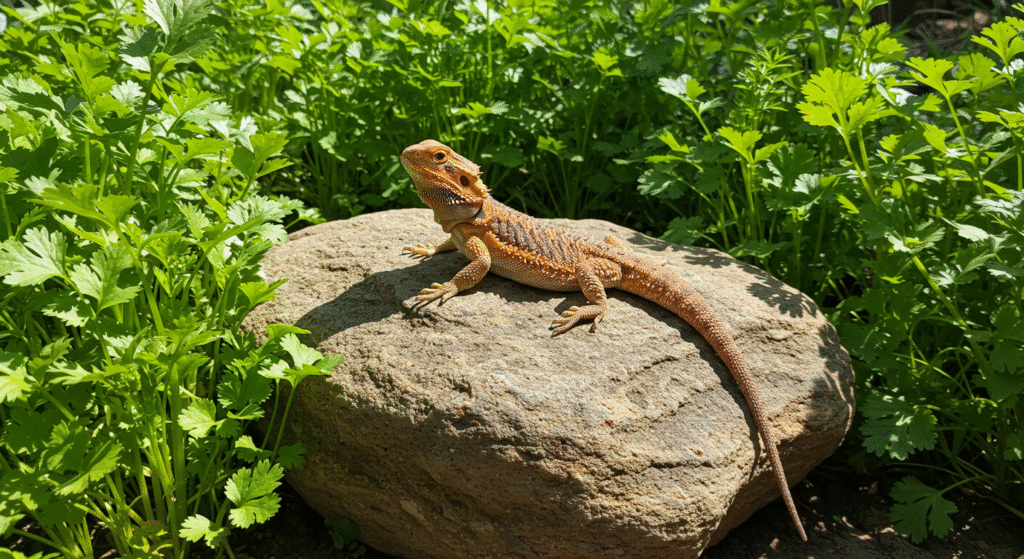
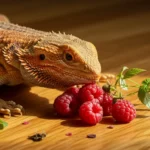
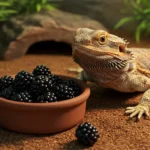
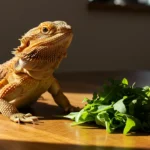
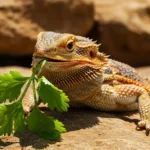
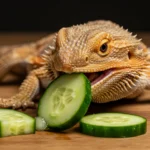
1 thought on “Can Bearded Dragons Eat Coriander? A Healthy Herb They’ll Love!”